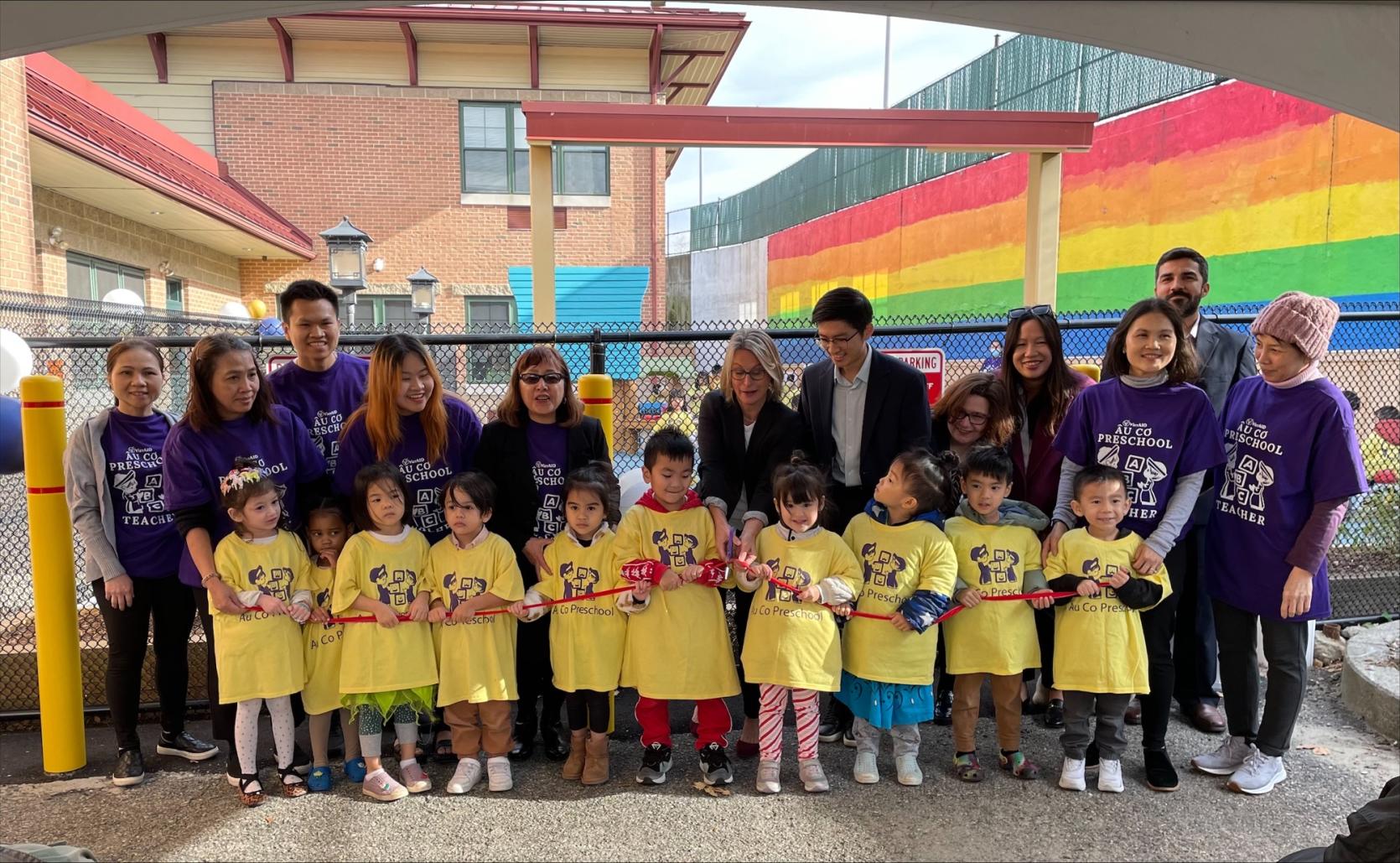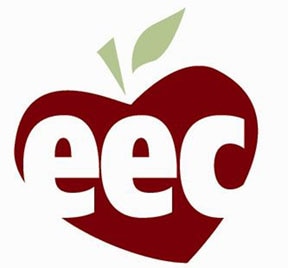- Department of Early Education and Care
- Executive Office of Education
Media Contact
Alana Davidson, Director of Communications

Boston — The Healey-Driscoll Administration announced today that the Department of Early Education and Care (EEC) has opened capital opportunities for early education and out-of-school time facilities that serve low-income families.
A total of $14.3 million in funding is available to support renovations and construction projects to expand capacity and improve the quality and accessibility of learning environments for children, ensuring they have safe, inclusive, and developmentally appropriate spaces to learn, play and grow. As part of the Administration's whole-of-government approach to addressing the climate crisis, EEC will prioritize projects that focus on clean energy and decarbonization. Projects that include security enhancements to prevent and respond to potential threats, such as active shooters and installation of security cameras and access control systems, will also be prioritized.
“Our administration is committed to making early education and care more affordable and accessible. We’re proud that this capital plan increases funding to better ensure that these programs have the financial resources they need to provide modern, healthy and safe environments for our kids to learn and play,” said Governor Maura Healey. “These grants will also help us make progress on our climate goals, which is essential for ensuring our kids have secure futures. We're grateful to the Legislature for their partnership in expanding capital opportunities in this year’s budget to improve and expand child care offerings for low-income parents, supporting their economic mobility and strengthening our economy.”
“This $14 million investment into capital projects for early education and care programs will help make our state more affordable and equitable, creating the kinds of physical indoor and outdoor spaces our children deserve to learn and play in every day,” said Lieutenant Governor Kim Driscoll. “These funds will improve programs’ energy efficiency, ventilation and water conservation, accessibility for families and educators in programs and outdoor play areas, create new classrooms to serve our low-income families, and so much more.”
"Massachusetts is stronger when we work together to accomplish our goals, especially when it comes to climate policy,” said Climate Chief Melissa Hoffer. "EEC's decision to prioritize clean energy and decarbonization projects for these capital grants is a great example of our whole-of-government approach to the climate crisis. It's imperative that we are intentionally incorporating climate into all that we do so that Massachusetts can protect the climate future the next generation."
These early education capital grants will allow center-based early education providers and family child care centers to improve the spaces where children learn. The grant allows for a variety of improvements including, but not limited to, modifications to improve indoor air quality, emergency repairs such as roof replacement or upgrading electrical or security systems, and physical environment modifications addressing accessibility or other upgrades for classrooms, outdoor areas, and more. Previous capital projects supported by EEC have ranged from outdoor sensory paths to new keycard security systems to adding multiple classrooms and bathrooms at a center.
The capital opportunities are available through a combination of funding sources, including $6.8 million from the Early Education and Out-of-School Time (EEOST) funding from the Administration's FY24 - FY28 Capital Investment Plan and $7.5 million of the Early Education & Care Provider Capital funding delivered in the fiscal year 2024 state budget. Grants will provide $200,000 - $500,000 in funding per project. For the first time, for-profit child care centers and out-of-school time programs that serve at least 50% of children who receive child care financial assistance will be eligible through a separate application. An application for larger funded projects ($500,000 - $1,000,000 per project) will be available through EEOST will be available in the near future.
“By injecting funds into renovations, repairs, and expansions at child care and out-of-school time facilities, we can make sure more students are experiencing classroom spaces that promote learning, growth, and positive educational experiences,” said Secretary of Education Patrick Tutwiler. “ This critical grant funding will support our child care centers and community organizations in providing accessible, safe, and inclusive spaces for children of all backgrounds and abilities, while helping us build a better and more sustainable future.”
The Administration has also opened a Request for Information (RFI) that focuses on supporting family child care (FCC) programs through dedicated capital funding, improving equitable access to capital. EEC is seeking feedback on the best way to invest capital funds in these small businesses that could help them build wealth and move toward property ownership, as well as create opportunities for the development of new programs to build greater access for families. The RFI also seeks feedback on challenges to starting an FCC business and becoming licensed, as well as to operating and sustaining high-quality programs, including but not limited to physical space, start-up costs, training and professional qualifications, and business operations.
“I am grateful that the state’s historic budget for EEC and increased funding in the Administration’s capital plan is enabling us to expand capital opportunities in early education and care, as well as explore the best way to support our family child care programs through capital funding that addresses their unique needs and challenges as small businesses,” said Early Education and Care Commissioner Amy Kershaw. “This $14 million investment will enable our kids, families, and educators to spend time in newer, greener and more sustainable and safe high-quality learning environments, supporting families to go to or return to work and engage in education and training.”
“This year’s small grant round will open opportunities for many more providers to improve their facilities. We are grateful for the Administration’s bold support of capital investments for child care. Every child deserves a program environment that is safe, enriching and contributes to positive child development,” said Theresa Jordan, Director, Children’s Investment Fund.
The capital opportunities are administered by EEC in partnership with the Children’s Investment Fund (CIF), an affiliate of the Community Economic Development Assistance Corporation (CEDAC). The applications and RFI opened on November 9. RFI submissions are due December 15. The capital applications close January 23 and for the first time will accept an electronic signature and include a fully online submission. There are information sessions available:
- November 28 at 11am and 6:30pm for nonprofit child care and out-of-school time programs
- November 29 at 11am and 6:30pm for the RFI
- November 30 at 11am and 6:30pm for for-profit child care and out-of-school time programs
“These grant opportunities are another great example of the Fair Share Amendment in action,” said State Senator Jason Lewis, Senate Chair of the Joint Committee on Education. “With additional support from our state’s top income earners, we are able to continue investing in high-quality, accessible early education for all, through grant opportunities for facilities that serve low-income families. Through these grants, we also continue our commitment to combat climate change by promoting clean energy infrastructure.”
"These grants play a crucial role in helping providers to provide environments that reflect the value of early education and child care. These are investments in safe, appropriate, and sustainable places for children to learn, grow, and develop on their education journey,” said State Representative Denise C. Garlick, House Chair of the Joint Committee on Education.
###
